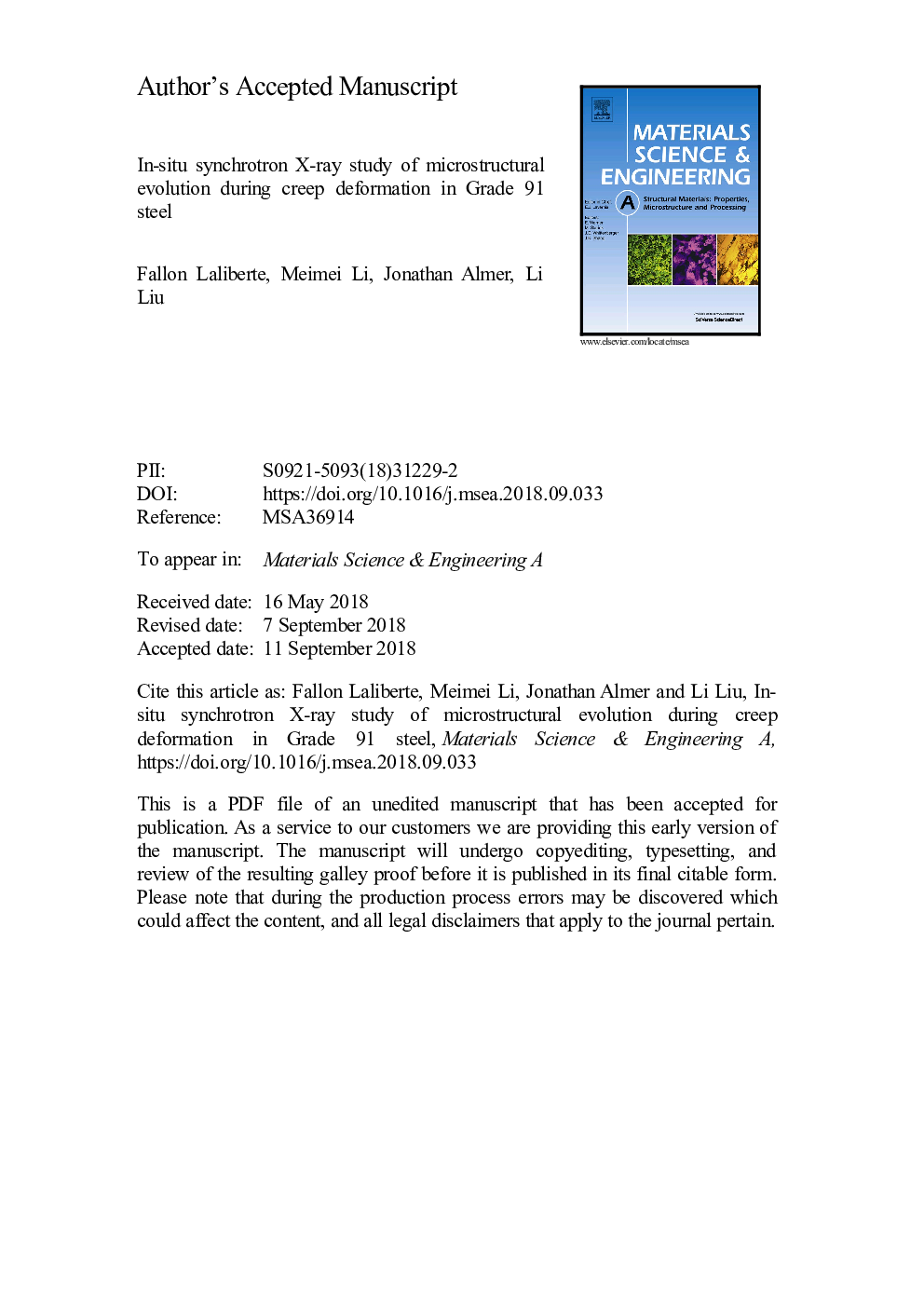| Article ID | Journal | Published Year | Pages | File Type |
|---|---|---|---|---|
| 10155890 | Materials Science and Engineering: A | 2018 | 22 Pages |
Abstract
Creep deformation mechanism of Grade 91 steel at 650â¯Â°C was investigated in-situ via wide-angle X-ray scattering (WAXS). WAXS peak broadening and a modified Williamson-Hall analysis provided information on evolution of dislocation densities in the primary αâFe phase, while WAXS peak shifts provided lattice strains in the αâFe matrix, M23C6 and MX precipitates. Load transfer was not evident during in-situ creep deformation, suggesting that precipitates did not significantly strengthen the matrix during creep deformation. Peak broadening results illustrated an increase in average dislocation density during primary stage creep. After onset of secondary creep, there was a decrease in dislocation density, attributed to annihilation and re-ordering of dislocations in the subgrain structure, followed by a relatively constant average dislocation density with increasing strain.
Related Topics
Physical Sciences and Engineering
Materials Science
Materials Science (General)
Authors
Fallon Laliberte, Meimei Li, Jonathan Almer, Li Liu,
